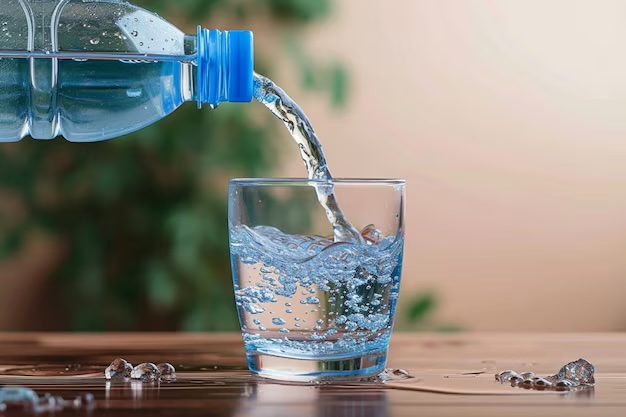The Importance of Hydration
Hydration is fundamental to health and wellness, with water making up about 60% of the human body and playing a critical role in digestion, circulation, and temperature regulation. Studies show that even mild dehydration—a loss of 1-2% of body weight in fluids—can impair cognitive performance and mood.
Nearly 75% of Americans are chronically dehydrated, increasing the risk of conditions such as kidney stones and urinary tract infections. For older adults, dehydration is a common issue, with estimates indicating that up to 40% may be inadequately hydrated, exacerbating the risk of complications.
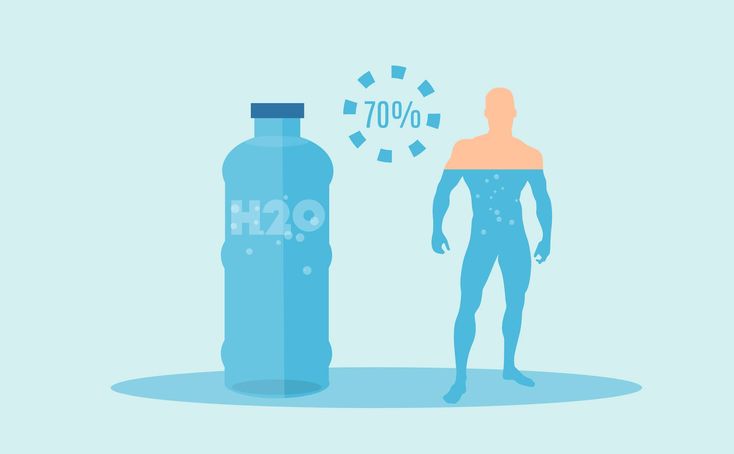
1. Hydration for Fat Loss
Hydration is essential for effective fat loss:
- Metabolic Efficiency: Water is critical for metabolic processes, including the breakdown of fat. Dehydration can slow down metabolism, making it harder to lose weight.
- Appetite Control: Sometimes, the body confuses thirst with hunger, leading to unnecessary calorie consumption. Staying hydrated helps manage appetite and prevent overeating.
- Exercise Performance: Adequate hydration enhances exercise performance, allowing for more intense and prolonged workouts, which can be vital for burning fat.

2. Hydration for Performance
Hydration significantly impacts physical performance:
- Energy Levels: Dehydration leads to fatigue and decreased energy, impairing both physical and mental performance.
- Muscle Function: Water is crucial for muscle function. Dehydration can cause muscle cramps, spasms, and general muscle weakness.
- Endurance and Strength: Proper hydration maintains endurance and strength during physical activities by ensuring muscles receive sufficient oxygen and nutrients.

3. Hydration for Overall Well-being
Staying hydrated greatly influences overall well-being:
- Cognitive Function: Dehydration can lead to cognitive impairments, such as difficulty concentrating, memory issues, and mood swings.
- Mood Stability: Adequate hydration supports hormone and neurotransmitter balance, which is essential for mood regulation.
- Digestive Health: Water aids in digestion and helps prevent constipation, contributing to overall digestive health and comfort.
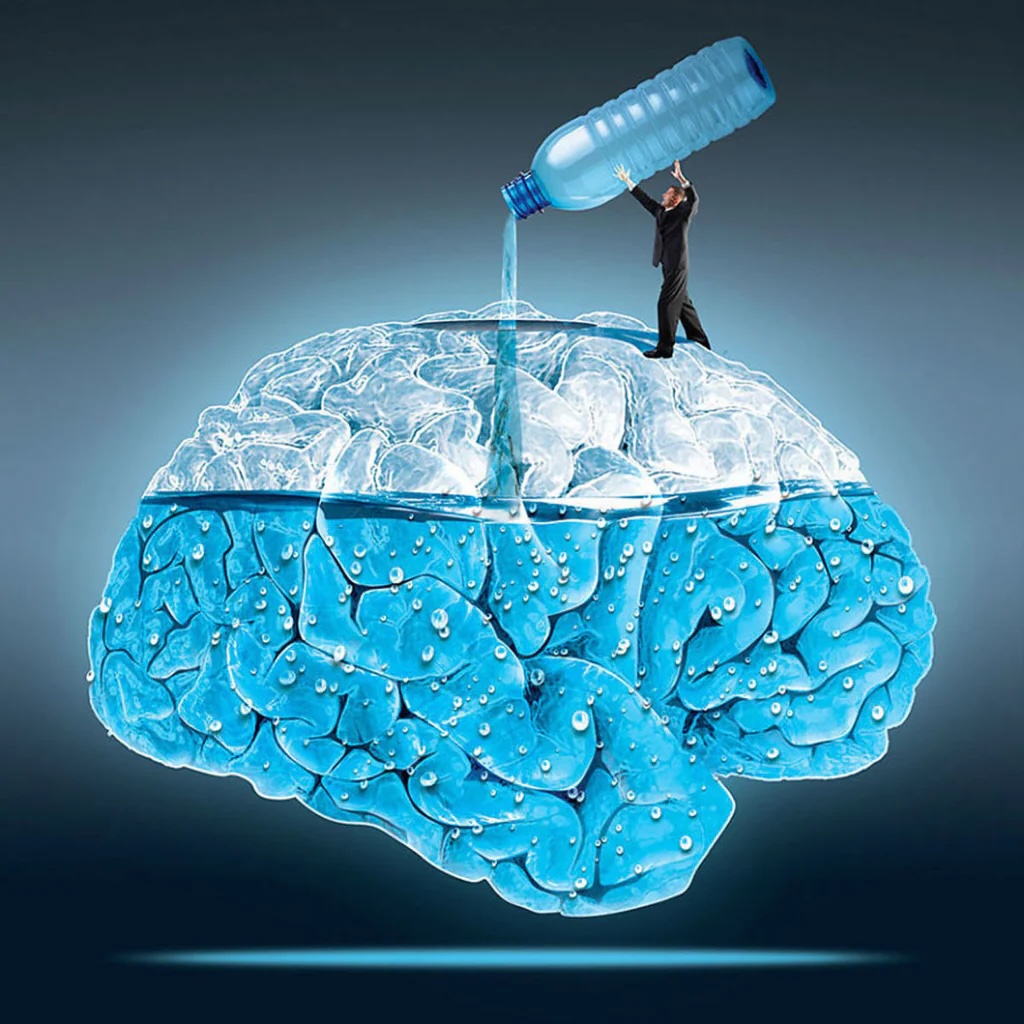
Hydration and Aging
As we age, we become more prone to dehydration due to several factors:
- Reduced Thirst Sensation: Older adults often experience a diminished sense of thirst, making them less likely to drink enough water.
- Kidney Function Decline: Aging kidneys are less efficient at conserving water, increasing the risk of dehydration.
- Medications: Many older adults take medications that can increase the risk of dehydration, such as diuretics and certain blood pressure medications.
- Physical Limitations: Mobility issues or cognitive impairments can make it harder for older adults to access and consume fluids regularly.
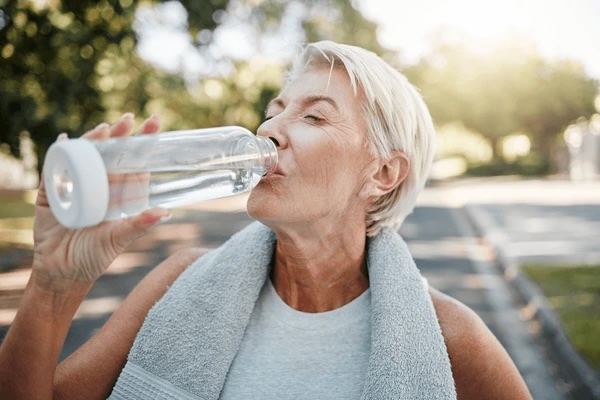
Problems Caused by Dehydration
Dehydration can lead to several health issues, including:
- Muscle Cramps:
- Electrolyte Imbalance: Dehydration can cause an imbalance of electrolytes, leading to muscle cramps and spasms. Proper hydration helps maintain the balance of essential minerals like potassium, magnesium, and sodium.
- Joint Health:
- Brittle Joints: Dehydration can cause the cartilage in joints to lose water, leading to brittleness and increased susceptibility to injuries. Hydrated cartilage is more flexible and can better absorb shock.
- Organ Health:
- Heart and Lungs: Dehydration can severely impact vital organs like the heart and lungs. The heart must work harder to pump blood when the body is dehydrated, which can lead to increased heart rate and blood pressure. Dehydration also reduces blood volume, making it more difficult for the lungs to oxygenate the blood effectively. This can result in decreased endurance and respiratory efficiency.
3 Keys to Maintaining Proper Hydration
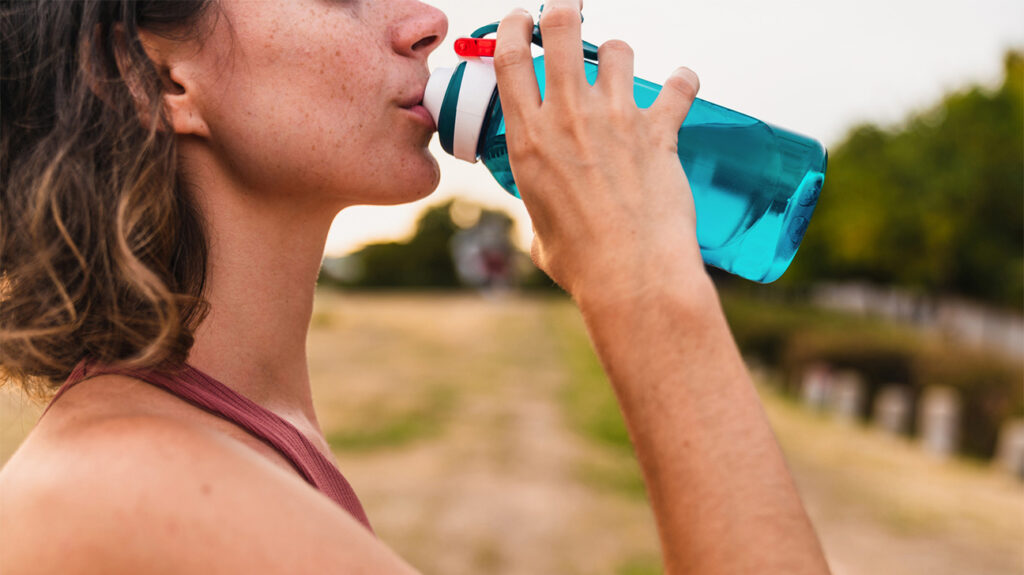
- Regular Water Intake:
- Daily Consumption: Aim to drink at least 8-10 glasses of water a day, adjusting for individual needs and activity levels.
- Consistency: Drink water throughout the day rather than trying to consume large amounts at once. Don’t wait until you’re thirsty.
- Monitor Hydration Levels:
- Check Urine Color: Light yellow urine generally indicates proper hydration, while darker urine suggests the need for more fluids.
- Body Signals: Pay attention to signs of dehydration, such as dry mouth, fatigue, dizziness, and headaches.
- Adapt Hydration to Activity Levels:
- Pre- and Post-Workout Hydration: Drink water before, during, and after workouts to replace fluids lost through sweat.
- Electrolyte Balance: For those who exercise 3-5 times a week, especially in hot or humid conditions, consider drinks that replenish electrolytes to maintain balance and prevent cramps.
By understanding the importance of hydration and implementing these strategies, individuals can enhance their fat-loss efforts, improve performance, and maintain overall well-being, especially as they age.
PS: Stay tuned for our next blog post where we’ll deep dive into sleep 😴😴😴!


